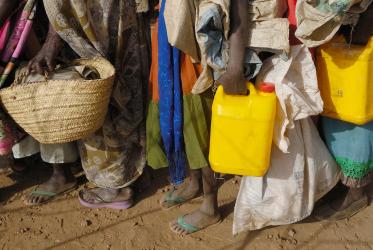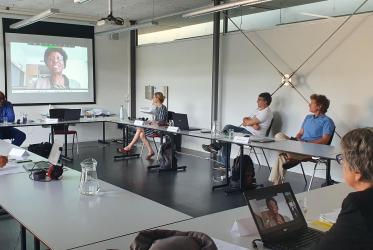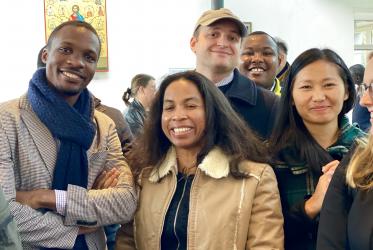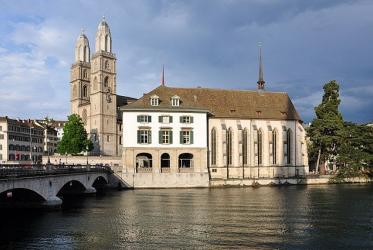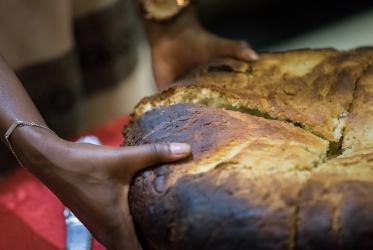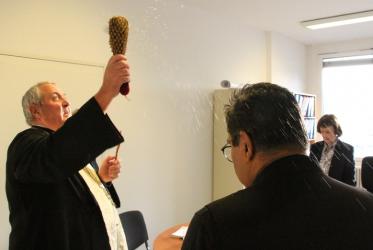Displaying 1 - 20 of 42
2022 Social Forum: Water for human rights and sustainable development
03 - 04 November 2022
Palais des Nations in Geneva, Switzerland
WCC’s Ecumenical Water Network attends Pilgrim Team Visit
30 August 2022
Faith communities vital in overcoming hunger
18 March 2020
WCC staff shares “great blessing of waters”
13 January 2020
WCC well-represented in Religions for Peace leadership
07 October 2019
Ecumenical young trailblazers
15 August 2019
WCC moderator speaks at Justice Conference in Norway
09 November 2018
